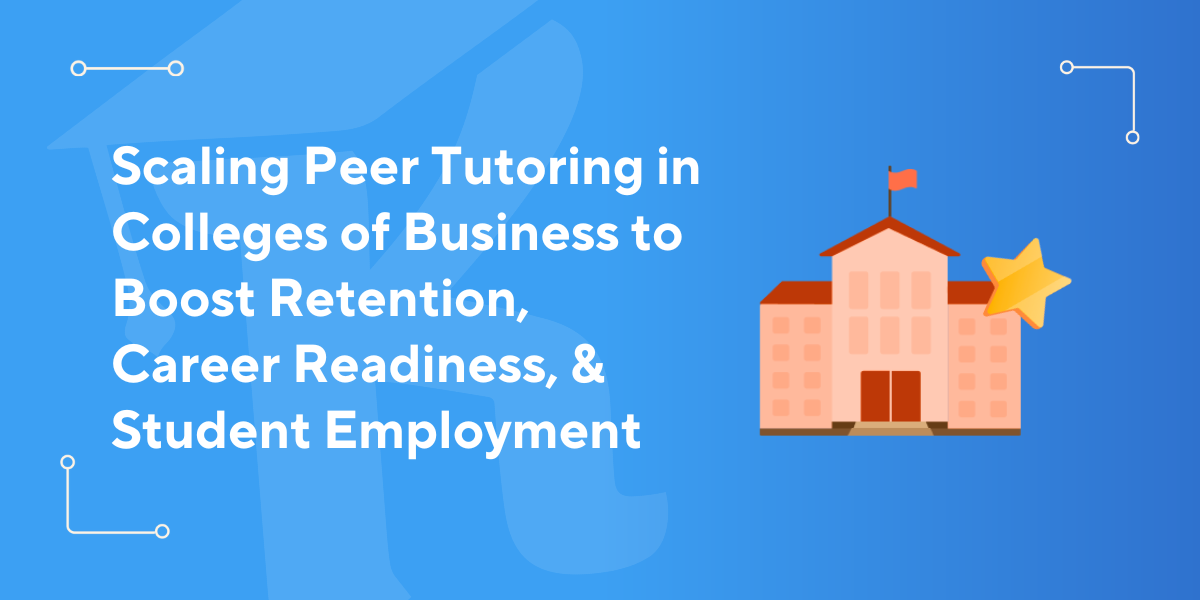Scaling academic support in colleges of business is a powerful strategy that not only enhances student retention and persistence to graduation but also fosters job creation for students. By integrating more peer tutoring opportunities, colleges can achieve both educational and economic goals, creating a dual benefit for institutions and students alike. As business schools grapple with student success and career readiness, peer tutoring offers a transformative solution that addresses key academic and social challenges.
Addressing Retention and Graduation Rates
The focus on student retention and persistence is at the heart of higher education, especially in business schools where students need to thrive academically to succeed post-graduation. As highlighted by Dr. Chuck Allen from Temple University's Fox School of Business, providing robust academic and social support is critical in helping students who may enter college underprepared. Peer tutoring offers personalized academic assistance that caters to the diverse learning needs of students, a method proven to increase retention by keeping students engaged with their coursework.
When students receive academic support from their peers, they not only improve their immediate academic performance but also gain confidence in their learning process, a critical factor in persistence to graduation. By building these peer-to-peer relationships, institutions have seen success in retaining students and preparing them for the workforce.
Building Career-Ready Skills
Peer tutoring doesn't just benefit those receiving help; the tutors themselves gain valuable experience that translates directly into career readiness. According to research, peer tutors develop critical skills such as communication, leadership, and collaboration—skills that are highly sought after in the business world . As Gen Z students enter higher education with entrepreneurial aspirations, peer tutoring provides a unique opportunity to build the soft skills employers value, including adaptability and emotional intelligence.
For example, peer tutors learn to adapt to different learning styles and challenges, honing their ability to problem-solve and think critically, which aligns perfectly with the adaptability and critical thinking skills employers seek in business graduates. Moreover, the leadership experience gained through tutoring others prepares these students to take on managerial roles post-graduation.
Creating Jobs for Students on Campus
An often overlooked benefit of scaling peer tutoring programs is the creation of jobs for students. In institutions where many students rely on financial aid, peer tutoring offers flexible employment that fits around their academic schedules. By integrating peer tutoring programs, colleges not only support students academically but also provide them with a source of income that enhances their overall college experience.
Additionally, peer tutoring can serve as an entrepreneurial venture for students interested in creating their own tutoring services. The experience of promoting their tutoring services, handling customer relationships, and managing time effectively equips them with marketing and entrepreneurial skills, both critical in today’s gig economy.
Enhancing Diversity and Inclusion
Institutions like Temple University and Texas Tech University emphasize the importance of diversity and inclusion in academic support. By making peer tutoring accessible to all students—especially those from underrepresented backgrounds—colleges can ensure that academic support is equitable and tailored to the diverse needs of their student populations. Peer tutoring also fosters a sense of community, an essential aspect of retention, as students who feel more connected to their peers are more likely to persist through academic challenges.
A Holistic Approach to Student Success
Scaling peer tutoring programs in business schools is more than just an academic support strategy; it’s a holistic approach to student success. Student success encompasses not only academic achievement but also personal growth and community building. Peer tutoring helps students develop their full potential by offering them opportunities to mentor others, gain leadership experience, and create meaningful connections on campus.
Scaling peer tutoring programs in business schools offers a multifaceted solution to the challenges of student retention, career readiness, and job creation. By investing in these programs, institutions can support their students academically while also preparing them for successful careers in business and beyond.
Ready to transform your academic support services and boost student success? Schedule a call with Knack to learn how we can help you integrate an effective peer tutoring strategy at your institution. Let’s work together to create a thriving, supportive environment for all students.
